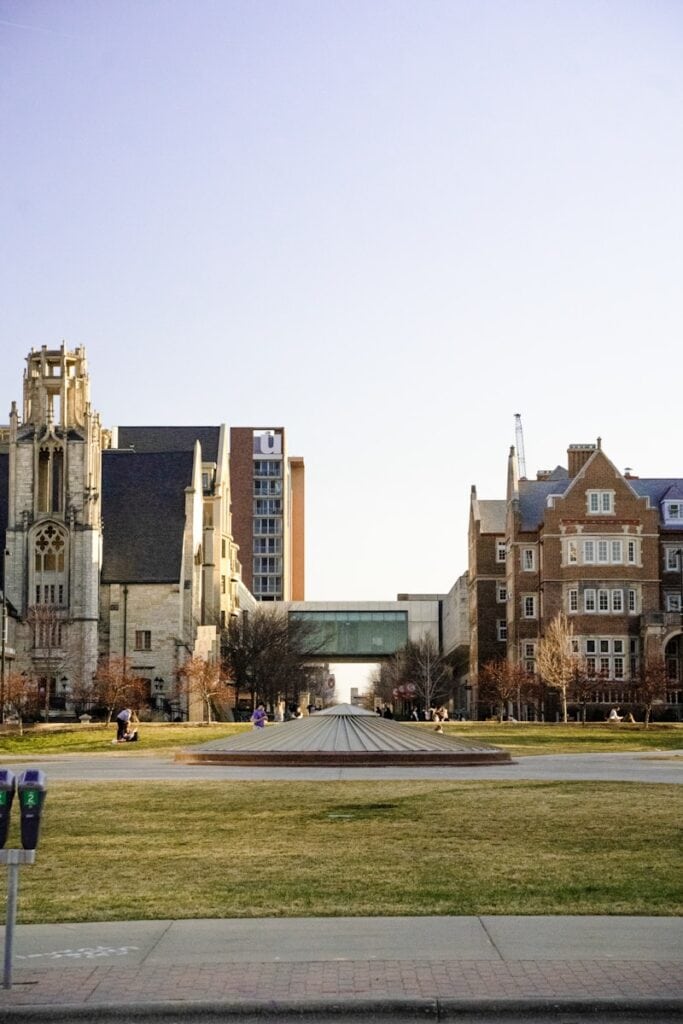Protect Your Rental Investment with Steadily
- Comprehensive coverage for fire, water, vandalism, and more
- Quick online quotes—get insured in minutes
- Tailored policies for short, mid, and long-term rentals
- Nationwide availability across all 50 states
Navigating the world of landlord insurance in Colorado can seem like a daunting task, but with the right knowledge, you can manage it like a pro! Landlord insurance is crucial for protecting your rental property from various risks, ensuring you’re covered for everything from property damage to loss of rental income. With Colorado’s unpredictable weather and comprehensive landlord-tenant laws, understanding the specifics of your coverage is more important than ever. In this guide, we’ll break down the types of landlord insurance available, the average costs, and the best practices for property management in Colorado. Get ready to take control and secure your investment with confidence!

In Colorado, landlord insurance typically encompasses several key components that are essential for safeguarding your rental property. Property Damage Coverage is vital. It protects against physical damage from perils like storms, fire, or vandalism, which are common given Colorado’s diverse weather conditions. Next, Liability Insurance is crucial. It safeguards landlords from legal expenses or medical bills if someone is injured on the property, providing peace of mind against potential lawsuits. Moreover, there’s Loss of Rental Income Coverage. This kicks in if your property becomes uninhabitable due to a covered loss, ensuring you can still receive rental income during repairs. For added security, consider Optional Coverage such as flood insurance or additional liability protections. These coverages tailor your policy to specific risks, like flooding, which standard policies may not cover. By understanding these types, landlords can ensure comprehensive protection for their Colorado rental properties.
The average cost of landlord insurance in Colorado hovers around $2,000 annually, translating to roughly $170 per month. This figure can vary widely, influenced by factors like property size, value, age, and location. The condition of your property also plays a significant role. Older properties or those in areas prone to natural disasters may see higher premiums. Similarly, properties with high replacement costs or those located in high-risk areas may face increased insurance rates. However, it’s crucial to weigh these costs against the potential financial protection insurance offers. Investing in comprehensive landlord insurance ensures coverage for unforeseen events, ultimately safeguarding your rental income and property value. For those looking to save, bundling insurance policies or implementing safety features like smoke detectors or security systems can sometimes reduce premiums. By understanding these cost dynamics, landlords can budget effectively and secure the best possible coverage for their needs.
Landlord insurance in Colorado is designed to offer broad protection, accommodating a variety of rental property types. Whether you own single-family homes, multi-family units, or apartment complexes, these policies can be tailored to fit specific needs. The scope of coverage extends to different rental arrangements, including short-term and vacation rentals. This flexibility ensures that landlords can adapt their insurance to the unique risks posed by different property types and tenant scenarios. Beyond basic property damage and liability coverage, landlords might consider additional endorsements to cater to specific situations, such as coverage for amenities like pools or coverage adjustments for properties in wildfire-prone areas. It’s crucial to align the policy with the property’s usage and potential risks. Understanding the scope of coverage available helps landlords in Colorado maintain robust protection, ensuring that their investment remains secure regardless of the rental model or property type they manage.
Understanding Colorado’s landlord-tenant laws is crucial for any property owner in the state. These laws cover various aspects, from security deposits to eviction procedures. Colorado law doesn’t cap security deposits, but landlords must return them within 30 days after a tenant vacates, including an itemized deduction list for damages beyond normal wear and tear. Entry laws require landlords to provide reasonable notice before entering a rental unit, although the exact timeframe should be defined in the lease agreement. This respects tenants’ rights to privacy while allowing landlords to maintain the property. The state also enforces anti-discrimination measures under the Fair Housing Act, ensuring equal housing opportunities for all applicants. Additionally, Colorado has regulations concerning rent control in specified areas and protections against retaliatory eviction. Recent legal changes have further strengthened tenants’ rights, granting them a right to lifetime possession under certain conditions. Familiarity with these laws helps landlords manage their properties effectively and legally.
In Colorado, landlords must navigate specific legal requirements concerning entry, repairs, and tenant protections. Landlords are obligated to provide reasonable notice before entering a rental property, except in emergencies. While state law doesn’t specify an exact notice period, it’s generally advisable to outline this in the lease agreement to avoid disputes. Regarding repairs, landlords are required to maintain their properties in a habitable condition. This means addressing necessary repairs promptly to ensure tenants have safe and livable accommodations. Failure to do so can lead to legal consequences, including rent withholding by tenants. Tenant protections in Colorado are robust, emphasizing anti-discrimination and privacy rights. The Fair Housing Act enforces these protections, prohibiting discrimination based on race, color, national origin, religion, sex, familial status, or disability. Additionally, Colorado law offers safeguards against retaliatory eviction, ensuring tenants cannot be unfairly removed for exercising their legal rights. Understanding and adhering to these regulations is vital for maintaining a positive landlord-tenant relationship.
Recent changes to Colorado’s residential tenancy laws have introduced significant implications for landlords. One notable adjustment is the enhancement of tenant rights, particularly regarding lease renewals and eviction protections. Tenants now have a right to lifetime possession of their rental unit provided they agree to reasonable lease renewal terms, which aims to reduce tenant turnover and promote stability in housing. Additionally, these changes outline specific conditions under which no-fault evictions can occur, offering more clarity and fairness in the eviction process. Landlords must now adhere to stricter guidelines to ensure compliance, including transparent communication and documentation of any tenant disputes. Furthermore, updates to anti-discrimination laws have strengthened tenant protections, ensuring fair treatment regardless of background. These legal shifts underscore the importance of landlords staying informed and adapting their practices accordingly. By understanding and implementing these changes, landlords can effectively navigate the evolving legal landscape while maintaining positive relationships with tenants.
Curious about rental property insurance? Get a quick quote from Steadily.For landlords in Colorado, ensuring adequate insurance coverage is a cornerstone of effective property management. This involves tailoring policies to match the specific characteristics and risks associated with each property. Start by assessing the basic coverages such as property damage, liability, and loss of rental income. Given Colorado’s unique climate, additional coverages like flood insurance might be necessary, especially in flood-prone areas. It’s also wise to consider legal liability coverage, which can protect against potential legal disputes with tenants. Regularly reviewing and updating your policy is crucial, especially if property values change or renovations occur. This ensures that the coverage limits are sufficient to cover the current replacement costs. Furthermore, consult with insurance professionals to identify any gaps in coverage and explore discounts for security upgrades. By proactively managing insurance needs, landlords can protect their investments against unforeseen events, ensuring financial stability and peace of mind.
Regular property inspections are essential for landlords aiming to maintain their rental properties’ condition and value. These inspections help identify maintenance issues early, preventing minor problems from becoming costly repairs. Typically, conducting bi-annual inspections strikes a balance, allowing landlords to keep tabs on property conditions without intruding on tenants’ privacy excessively. Before conducting an inspection, provide tenants with adequate notice, as outlined in the lease agreement, to ensure compliance with Colorado’s landlord-tenant laws. During inspections, focus on key areas like plumbing, electrical systems, roofs, and HVAC units. Document any issues found and create a plan for necessary repairs or maintenance. Additionally, use this opportunity to communicate with tenants about any concerns they might have, fostering a good landlord-tenant relationship. By prioritizing regular inspections, landlords can protect their investment, ensure tenant satisfaction, and potentially reduce the frequency and severity of insurance claims. This proactive approach is a hallmark of successful property management.
Creating clear and comprehensive lease agreements is a fundamental practice for successful landlords in Colorado. A well-drafted lease not only defines the terms of the rental relationship but also helps prevent misunderstandings and disputes. Start by detailing essential elements such as rent amount, payment methods, and due dates. Include specifics on security deposits, including their amount, how they’ll be used, and the conditions for their return, adhering to Colorado’s regulations. Clearly outline maintenance responsibilities for both the landlord and tenant to avoid confusion about repair duties. Additionally, define terms for property entry, providing reasonable notice requirements. Address any specific property rules, such as pet policies or smoking restrictions, to ensure tenants are fully informed. Regularly review and update lease agreements to reflect changes in state laws or property policies. By investing time in crafting thorough lease agreements, landlords can establish clear expectations, minimize legal risks, and foster positive tenant relationships.
Our advise is based on experience in the mortgage industry and we are dedicated to helping you achieve your goal of owning a home. We may receive compensation from partner banks when you view mortgage rates listed on our website.


